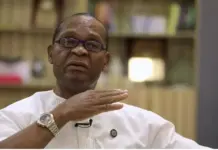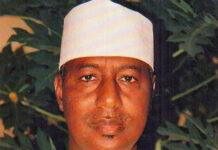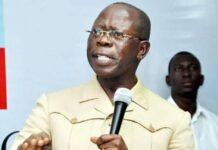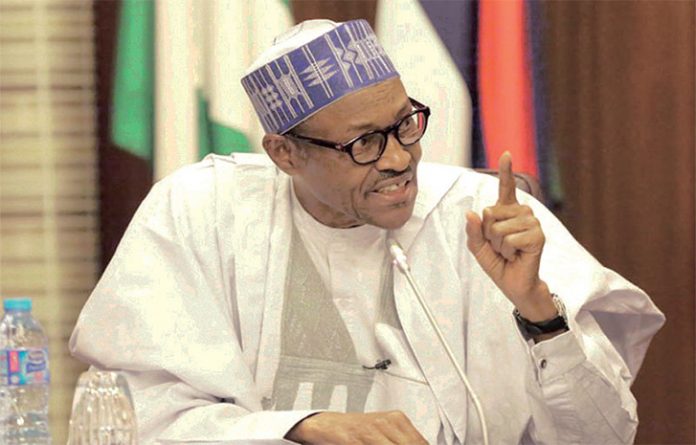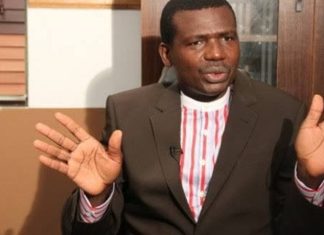The fire in Benue has started up again. Since January of this year, there has been hardly a week that has gone by without a news report of killings in one or other communities in the state. This indicates a steady but dangerous escalation of the inter-communal fire that has engulfed the state over the course of the past ten years or so, with no reprieve on the horizon. It is the belief of this organisation that the unfortunate cycle of attacks and counterattacks in Benue must end immediately.
According to reports, dozens of people were killed in separate attacks by armed groups across several rural areas of the state during the week that ended on Saturday, April 8th. These attacks took place during the week that ended. Catherine Anene, the spokesperson for the Benue State police, told members of the press that 28 bodies were discovered at an Internally Displaced Persons (IDPs) camp in the Mgban Local Government Area of the state between the hours of Friday evening and Saturday morning during the same week that these attacks took place. Umogidi is a remote village located in the Otukpo Local Government Area of the state. On Wednesday of the same week, it was reported that suspected herdsmen killed dozens of villagers who were attending a funeral in the village. According to Paul Hemba, the Security Adviser to the Governor of the State, who was speaking to members of the press, a total of 46 bodies were recovered as a result of that single attack.
Read Also: APC wins supplementary election for Kankia constituency of Katsina State
This newspaper reported just this past Wednesday that a total of 134 people had been killed by armed men in separate attacks in Guma, Otukpo, and Apa local government areas of the state during the four days between April 3 and April 7, 2023. The information was cited from the Governor of the State, Samuel Ortom. The attacks took place between April 3 and April 7. On March 7, 2023, approximately one month prior to all of these events, newspapers reported that at least 36 people had been killed by suspected herdsmen in the Kwande Local Government Area (LGA) of the state. At least 38 herders were killed when members of the Nigerian Airforce opened fire from the air on pastoralists travelling from the state of Benue into the state of Nassarawa. The herders had travelled to Nassarawa State to reclaim more than one thousand cows that had been taken by the Benue Livestock Guards.
The inter-communal rivalry and competition for space, farming and grazing resources, as well as a crude politics of identity between Fulani pastoralists on the one hand and local farming communities on the other, which make up the majority of Benue’s population, are at the centre of the worsening crisis in the state of Benue. Add to this the ravaging effects of climate change, which have led to a reduction in the available water and land resources that are necessary for farming and herding. As a consequence of this, the competition between the two groups for limited resources can easily escalate into wider racial and religious tensions, as well as into acts of retaliatory violence carried out by opposing militia groups that have been formed to “protect” the communities at war. Worse, politicians and local community leaders on both sides of the conflict often cynically exploit these conflicts for their own gain, doing little more than trading blames in an effort to bring about lasting peace.
It does not matter to the community leaders in Benue that similar attacks occur between people of the same ethnic and religious groups in states like Katsina, Sokoto, and Zamfara as a result of the same competition for scarce resources. These attacks are caused by the same lack of resources. Instead, it seems as though each side of the divide is content with playing the victim card in narratives that, unfortunately, only serve to exacerbate existing racial and religious tensions.
In addition, the state government has been unable to provide the kind of leadership that is necessary to bring together the different communities in order to work towards achieving peace. Instead, Governor Ortom, in particular, has continued to engage in rather demagogic rhetoric and divisive policies, both of which serve only to inflame passions, harden hearts, and pit communities against each other, without actually solving the problem. And rather than work with the federal government and its security agencies, such as the police and the military, to help tame the tide of rising violence in his state, he has sought to cast himself as the victim of a non-existent federal aggression. This is in contrast to the fact that he worked with the federal government to help tame the tide of rising violence in another state. It is beyond reasonable doubt that the conflict in Benue State existed prior to the administration of Samuel Ortom. Similarly, it is beyond reasonable doubt that his demagogy, actions, and policies have only served to exacerbate the situation.
But if Ortom’s government leaves a leadership void in the state, the federal government, which is ultimately responsible for safeguarding people’s lives and property, has not yet stepped in to fill it. And we must point out that this is a major shortcoming on the part of President Buhari himself. It is true that Ortom has not made it easy for the federal government to help in Benue, but this should not be a concern because, according to our constitution, the President of Nigeria is not only the Protector-in-Chief of all Nigerians regardless of where they live, but he is also the father of all, according to our traditions. This means that he is responsible for the welfare of all Nigerians. Both of these roles are extremely important, and the President should be able to use the resources that are at his disposal to devise a strategy that allows him to work with or around the local government and communities in Benue in order to bring about an enduring peace there. Both of these roles are not insignificant. Even though President Buhari’s time in office is drawing to a close, there is still a great deal that can be done to prevent a conflict of some kind in the state of Benue.
It is being urged on all parties involved that they should understand what is at stake here: Benue is a state that is strategically located at the crossroads of several other states, including Nassarawa, Plateau, and Taraba, all of which have demographics that are very similar to one another. As a result, the growing communal conflict in Benue could snowball into any one of those, which would likely make the situation a great deal worse. Therefore, we strongly encourage the communities in the area to adopt more peaceful attitudes towards one another and to commit to working towards establishing peace. Above all else, we urge the incoming federal and state governments not to abandon Benue to the dictates of sectarian passions, as their soon-to-be predecessors may be argued to have done over the course of the previous eight years.
Join Television Nigerian Whatsapp Now
Join Television Nigerian Facebook Now
Join Television Nigerian Twitter Now
Join Television Nigerian YouTUbe Now

